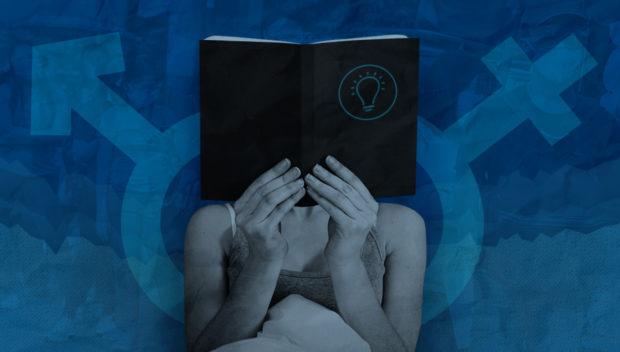
A gynecologist-friend examined me and immediately recommended ‘raspa,’ a surgical procedure that involves removal of the uterus’ lining.
Things went back to normal for a while but six months later, the bleeding recurred — this time more profusely. A doctor who specializes on cancers of the female reproductive system diagnosed me with stage 1 cancer of the uterus.
Within a week, I had my womb removed. I went through a range of feelings—from shock, sadness to acceptance.
Despite everything I went through, I felt lucky to have visible signs of a sexual health problem. I was fortunate to have access to health specialists and to have received early diagnosis and treatment.
But what about women in urban poor communities where health care is expensive, or women in rural disadvantaged areas where health care is barely existing? What about teen mothers who can’t access health care without being judged or discriminated against?
As we celebrate World Sexual Health Day on September 4, let us open the discussion on sexual health.
Unlike other health topics, sexual health is not part of regular conversations in the family, in school, and sometimes even among health service providers. Often, people view sexual health as a “taboo” subject attached with malice and judgment.
Ignoring sexual health
When the Responsible Parenthood and Reproductive Health Law (RPRH) of 2012 was passed, many were optimistic that Filipino adolescents would receive comprehensive and useful information about sexual health through the Comprehensive Sexuality Education (CSE). Unfortunately, to this day, the CSE standard curriculum has not yet been officially launched.
Teenage pregnancy was declared a “national social emergency” by the government in 2019. Data from the Population Commission even showed an increasing number of pregnancies among younger adolescents age 10 to 14 years old which rose by 63 percent or 2,250 in 2018 from 1,381 in 2011.
Alarming figures from the United Nations Population Fund also revealed that “only three percent of live births from the 15-19 pregnant adolescents is fathered by men from the same age group.” These show the presence of gender-based violence and unequal power relations.
Sexual health as mainstream subject
Conversations around sexual health do not have to be technical and complicated. Adults and youth need to discuss positive sexuality, intimacy, consent, bodily changes, healthy relationships, and bodily integrity which are all part of sexual health.
What is essential is a safe space and non-judgmental conversations.
Under the Sexual Health and Empowerment (SHE) Project, Oxfam Pilipinas and 11 partner organizations created safe spaces for young people to discuss their fears, concerns, and even possible solutions to issues such as teenage pregnancy, and child, early and forced marriage. This has empowered them to take control over their own bodies, as well as negotiate and educate their peers.
Oxfam Pilipinas and its partner organizations also conducted parent-teen talks, family development sessions, peer educators’ trainings, and sexual reproductive health and rights caravans to reach young women and girls in remote and rural communities. They also stressed the need for the unhampered delivery of sexual and reproductive health services and information to women and girls during the pandemic.
Discussions on sexual health have enabled women to shift from traditional to modern family planning methods that give long-acting protection against unintended pregnancy.
In some municipalities, teen pregnancy prevention ordinances have been passed and adolescent-friendly centers have been established providing information, counseling, medical consultation and risk assessment among the youth.
Sexual health is an essential part of us. By understanding what it means and how it contributes to our total well-being, we can all celebrate it.
(Editor’s note: Ces De Castro-Villa is sexual reproductive health and rights specialist of Oxfam Pilipinas)